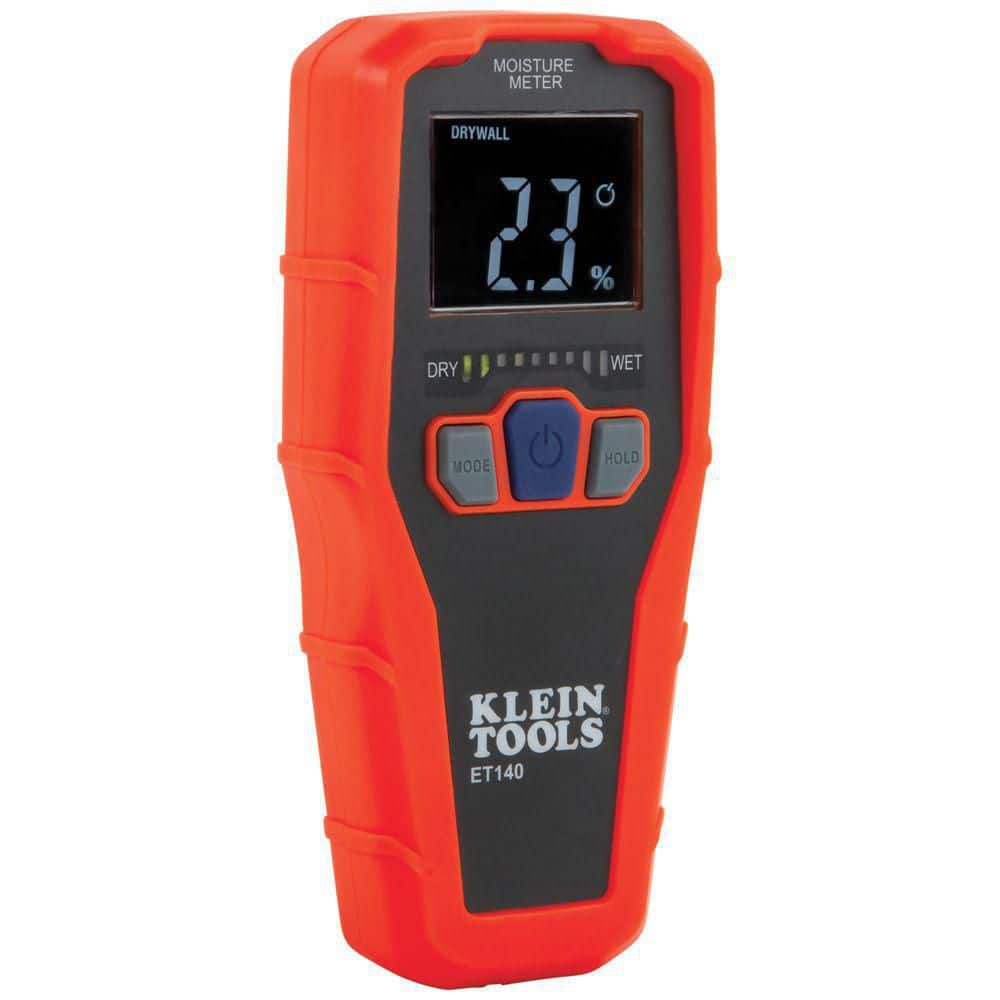The Ultimate Overview to Moisture Meters: A Comprehensive Overview and Just How They Can Save You Money
Moisture meters offer as essential devices in finding and keeping track of moisture web content in materials, assisting in avoiding pricey damages and making certain the quality of items. Understanding the nuances of various types of wetness meters, their applications, and the possible cost-saving benefits they use can be a game-changer for businesses and experts alike.
Kinds of Moisture Meters
Numerous sorts of dampness meters are available for various applications in different sectors. One typical type is the pin-type dampness meter, which measures the electric resistance between two pins put into a product. This type appropriates for wood, drywall, and various other building materials. Pinless wetness meters, on the various other hand, use electromagnetic sensor plates to scan a bigger location without creating damages to the material's surface. Moisture Meter. These meters are perfect for rapidly assessing moisture levels in large areas such as floorings and wall surfaces.

Additionally, there are additionally specialized moisture meters made for certain materials like hay, dirt, or grain. These meters give precise moisture analyses tailored to the unique residential or commercial properties of the product being checked. Infrared moisture meters gauge the thermal properties of a product to determine its wetness content non-invasively, making them beneficial for applications where pin or pinless meters may not be ideal. Recognizing the different sorts of moisture meters offered can aid markets pick the most proper tool for their particular dampness measurement requirements.

Advantages of Using Wetness Meters
Wetness meters offer vital benefits in accurately keeping track of and examining dampness degrees in diverse materials and atmospheres (Moisture Meter). Among the key advantages of using wetness meters is the avoidance of possible damages triggered by excess moisture. By discovering and attending to high dampness levels at an early stage, wetness meters aid to stop mold and mildew development, rot, and architectural damages in buildings, saving both time and money on repair work. Furthermore, wetness meters help in making sure the top quality of products throughout construction or manufacturing processes. By accurately measuring moisture content, these tools help keep the integrity of wood, drywall, concrete, and other materials, reducing the risk of defects or failures.
Additionally, utilizing dampness meters can bring about increased power effectiveness. By determining areas with high moisture levels, such as leakages or inadequate insulation, modifications can be made to boost energy preservation and minimize energy visit this website prices. In agricultural setups, wetness meters play a vital role in optimizing crop yields by allowing farmers to check dirt wetness levels and make informed watering decisions. On the whole, the benefits of making use of wetness meters extend across numerous markets, giving economical solutions and promoting far better quality assurance techniques.
Exactly How to Choose the Right Wetness Meter
When picking a wetness meter, it's necessary to ensure that the meter is appropriate for the certain product you will be screening. Various products have varying electric residential properties that can impact dampness analyses, so choosing a meter made for your material is critical for precise outcomes. By thoroughly examining these variables, you can select a moisture meter that fulfills your demands and supplies precise wetness measurements web link for your projects.
Correct Techniques for Dampness Meter Use

Price Financial Savings Via Dampness Meter Applications
Exactly how can the strategic use of dampness meters lead to considerable expense financial savings across different markets? In the farming sector, moisture meters aid in establishing the optimal time for harvesting crops, avoiding over-drying or excess moisture that can affect the final item's top quality.
Similarly, in building, moisture meters help protect against costly problems by detecting dampness degrees in building materials, such as wood or concrete, which can result in structural problems if not attended to quickly. By recognizing problem areas beforehand, professionals can take rehabilitative actions to avoid considerable repair work or replacements, inevitably saving time and money.
Moreover, in the food processing market, dampness meters are important for checking product top quality and guaranteeing conformity with security laws. By precisely gauging moisture content in food, producers can protect against spoilage, preserve freshness, and minimize waste, resulting in substantial expense financial savings. Generally, the strategic application of wetness meters is a valuable financial investment that can lead to significant cost decreases and enhanced performance across various industries.
Conclusion
Finally, wetness meters are valuable devices for identifying and determining dampness degrees in various products. By making use of the right dampness meter and complying with proper their explanation strategies, users can properly avoid pricey damages triggered by excess dampness. Purchasing a high quality moisture meter can cause significant price savings over time by determining potential issues early on and enabling prompt removal. Inevitably, wetness meters are vital instruments for preserving the stability and long life of products and frameworks.
Moisture meters serve as important tools in detecting and keeping track of moisture content in materials, aiding in protecting against pricey damages and ensuring the top quality of items. Infrared wetness meters gauge the thermal residential or commercial properties of a material to establish its dampness content non-invasively, making them useful for applications where pin or pinless meters might not be appropriate.Moisture meters offer indispensable benefits in accurately monitoring and evaluating wetness degrees in varied products and environments. In agricultural settings, wetness meters play a critical role in optimizing crop yields by allowing farmers to keep an eye on dirt dampness degrees and make informed irrigation decisions.In final thought, wetness meters are useful devices for determining and finding dampness degrees in numerous materials.